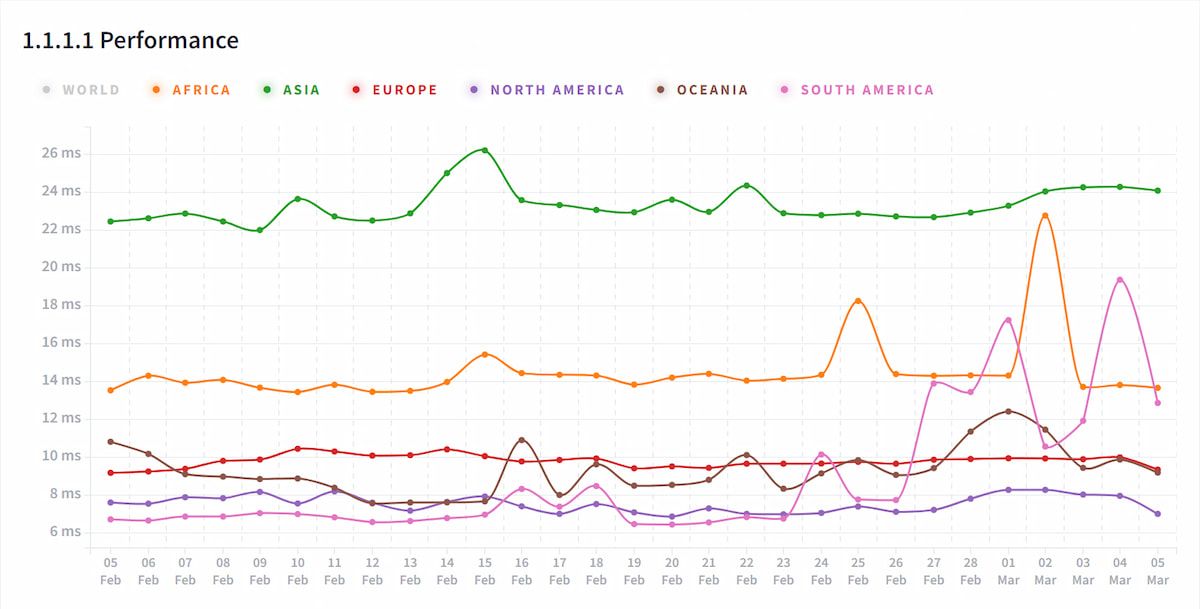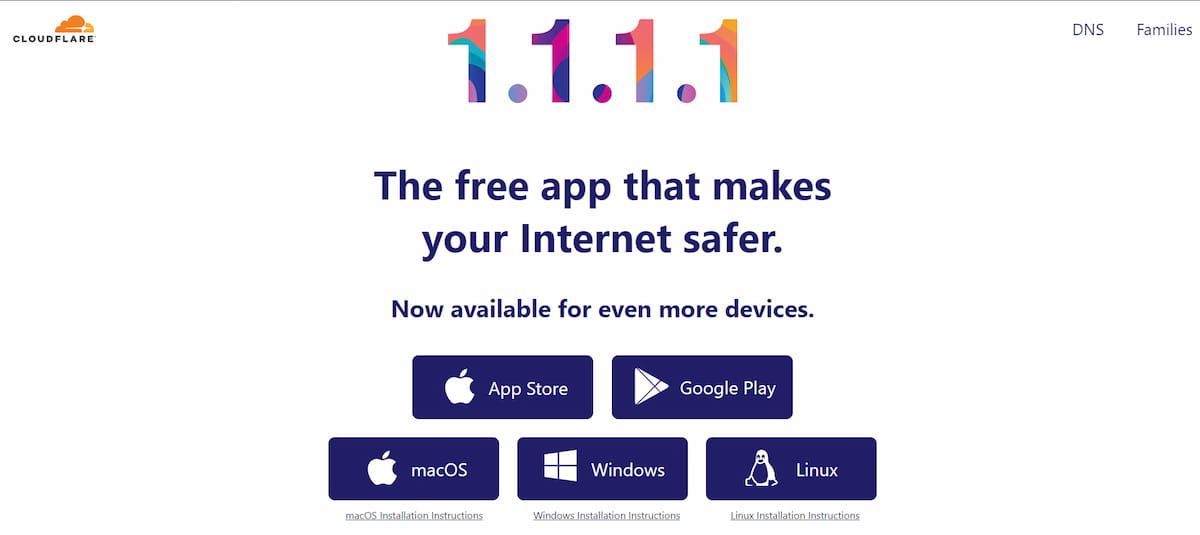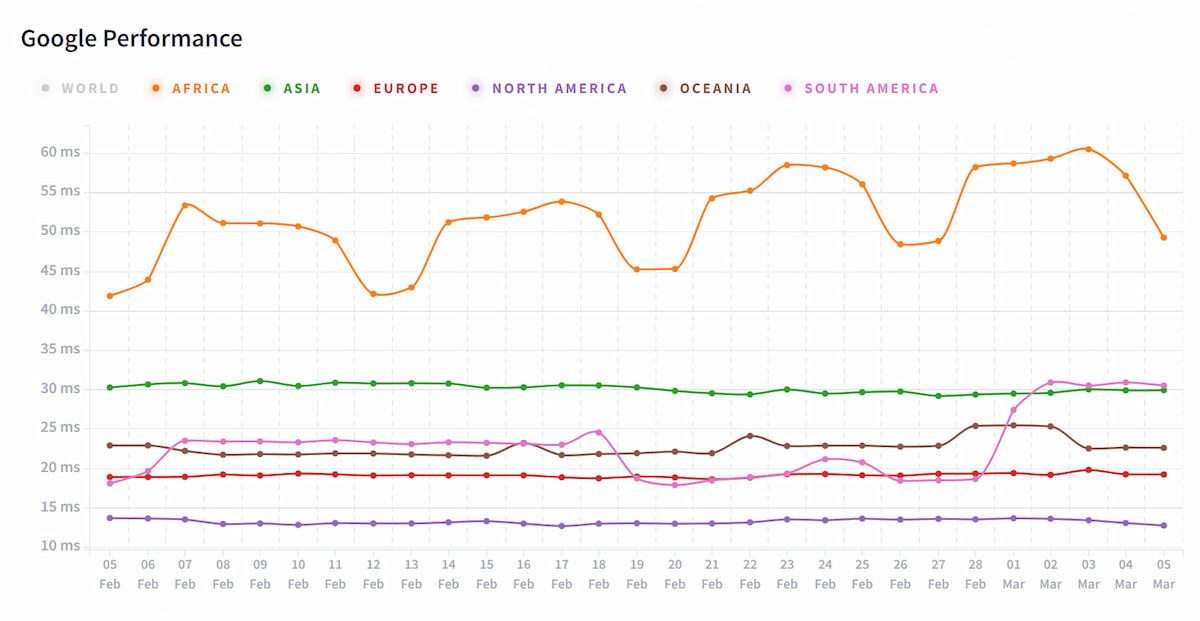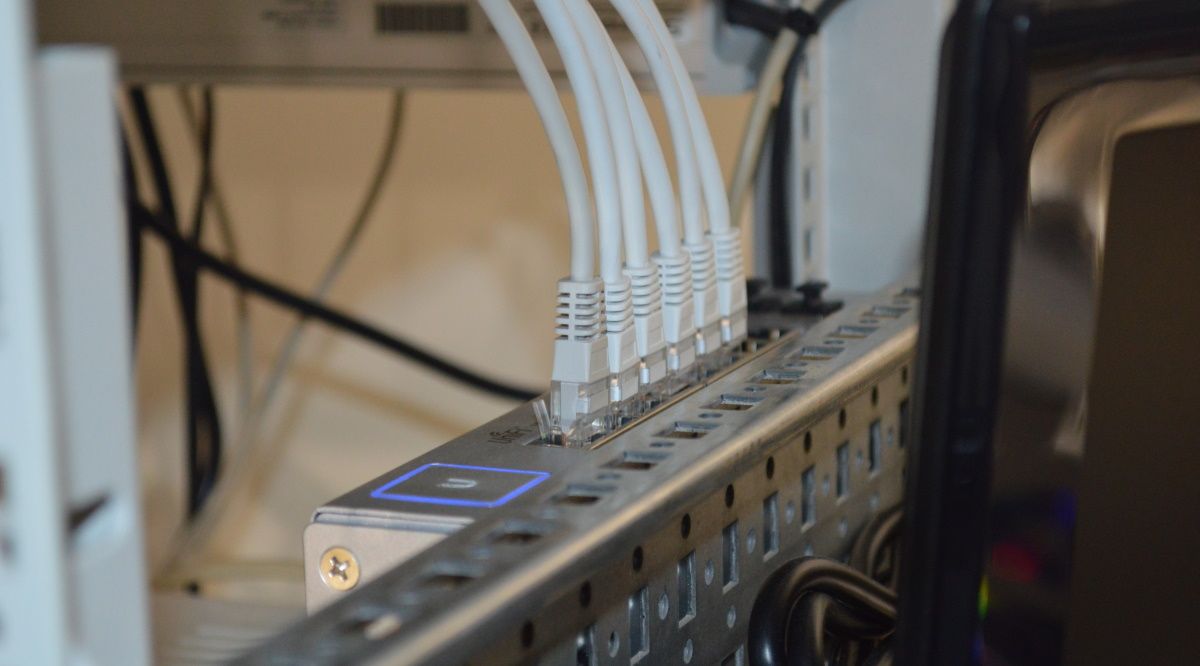If you’re a geek, you’re probably familiar with DNS. A good DNS provider can have a big impact on your internet connection’s speed and browsing experience.
There are numerous DNS service providers, each claiming to be the fastest. And while most users stick with the default ISP option, others prefer to utilize Google DNS or Cloudflare DNS on their devices. So, let’s look at which is the fastest DNS between the two and which DNS provider respects your privacy most.
What Is DNS?
The Domain Name System (DNS) is the internet’s directory service. When you click a link or type a URL in your browser, your device needs to look up the website’s address on the internet. Here, the DNS comes into play. In layman’s terms, a DNS is a network protocol that connects you to websites by connecting human-readable domain names (for example, www.makeuseof.com) with the server’s unique identifier address.
That’s a rough overview, but if you want to know more about DNS, you should check out our post on what DNS is and why it’s important.
Google DNS vs. Cloudflare DNS
It is a fact that whatever websites or links you visit in your browser, your Internet Service Provider (ISP) keeps track of all of that. In some cases, they can even sell that information to advertisers. This is why using a private DNS has become so important. Fortunately, both Google public DNS (8.8.8.8) and Cloudflare DNS (1.1.1.1) offer reliable latency and DNS optimizations to a global audience.
However, when it comes to choosing the best DNS service, Cloudflare outperforms Google in some cases.

Let’s see how these two well-known DNS providers fare in a head-to-head comparison of significant factors.
1. Basic Features
Both DNS providers are popular options around the world. Cloudflare is mainly preferred for its easy-to-use protocols and privacy-focused measures. However, Google DNS is preferred by many because it is backed by Google, which means it is safe and easy to use.
However, it is not hidden from anyone that Google is not the best option if you care about your privacy. Another downside is that if you use Google’s public DNS, you don’t get a DNS filtering feature.
DNS filtering is a solution for preventing spam emails from being sent from known malicious IP addresses. Cloudflare, thankfully, supports DNS filtering in addition to browser isolation and other features that ensure the security of internal users.
Another good thing about Cloudflare is that its DNS service is also available for Tor clients, which is like a cherry on the cake. The Tor network and Tor browser provide much greater anonymity online, ensuring greater privacy while browsing the internet. Another reason to choose Cloudflare is that it offers dedicated apps and software that you can download from 1.1.1.1 and set up extra settings for Android, iOS, Windows, or even a Mac.
2. Privacy and Security

As with smart devices, DNS is prone to various online attacks that can redirect users to malicious websites. As a result, it is very important to choose safe DNS providers to protect you from malicious attacks.
- To protect your privacy, Cloudflare’s DNS replaces your ISP’s DNS and encrypts every request your device sends so that it can’t be read by anyone else.
- On the other hand, Google public DNS supports DNS-over-HTTPS, DNS-over-TLS, DNSSEC, and DoS attack protection. But, you should take note that Google is an advertising company, and its most valuable asset is its users’ data.
Google retains query IP address data for 24–48 hours for performance and security reasons, but internet service provider (ISP) and location information are permanently retained on Google’s servers.
On the other hand, Cloudflare keeps only a small amount of transaction and debug log data for 25 hours to do legitimate research. So, if you’re a privacy-concerned user, the best alternative for you is Cloudflare’s 1.1.1.1.
3. Speed and Performance
In terms of speed, Google Public DNS outperforms Cloudflare. This is because of several things, including global coverage, more servers, and a shared cache. Most of the time, DNS lookups create a bottleneck, slowing down your browsing. Thankfully, Google has taken several steps to improve DNS lookup times.

That is not to say Cloudflare is not fast or performs poorly. Cloudflare’s DNS servers are housed in data centers all over the world, and users are sent to the data center that is closest to them.
In general, you can use Google DNS to avoid pressure on your ISP’s DNS servers. By using its global data center and cache infrastructure, it can serve a lot of users without having to ask other DNS resolvers for help.
Besides that, it uses large, Google-scale caches and balances your internet traffic so that it can respond to a large number of queries from the cache.
4. Global Connectivity and Latency

When it comes to global connectivity and coverage, both Google and Cloudflare have servers in over 250 cities worldwide, enabling lightning-fast queries for the majority of domains. In addition, 1.1.1.1 has also been named the fastest DNS service by a well-known and independent service called DNSPerf.
Now, when it comes to latency, it depends on geographical areas. If you’re located in a region with many data centers, the latency will be much lower than in regions with fewer. We recommend checking out DnsPerf’s DNS performance page to get a clear overview of the best DNS for you. Don’t forget to change the Location to your country for better and more accurate results.

5. Reliability and Uptime
There is no doubt that Cloudflare can deliver high-quality performance. But, in terms of reliability, Google’s DNS takes the lead because of its better and more advanced wide network of data servers across the world.
Another factor that adds a point in Google’s favor is that it uses anycast routing. This means that when you visit a website, the DNS connects you to a nearby server and routes your IP address to that server. It ensures that you have a smooth web browsing experience.
While Google’s public DNS servers operate efficiently, Cloudflare slightly outperforms Google in terms of uptime. In layman’s terms, DNS uptime shows how active a DNS server is.
Taking everything into consideration, if you’re looking for a dependable DNS service that will never let you down, give Google DNS a try. However, if you’re looking for a quality DNS service provider (that respects your privacy), Cloudflare is a better option due to its excellent uptime history.
Google vs. Cloudflare DNS: Which One Should You Choose?
Google and Cloudflare are both leading DNS service providers with a plethora of useful features.
If you value your privacy and want to keep one step ahead of the competition, Cloudflare DNS (1.1.1.1) is, in our view, the best option. On the other hand, if you’re looking for a faster DNS provider, but at the expense of some data collection—you might prefer using Google public DNS (8.8.8.8/8.8.4.4).
However, before deciding, you should perform some benchmarking to determine the best DNS for you, as other aspects such as location and availability play a significant role.
Read Next
About The Author






